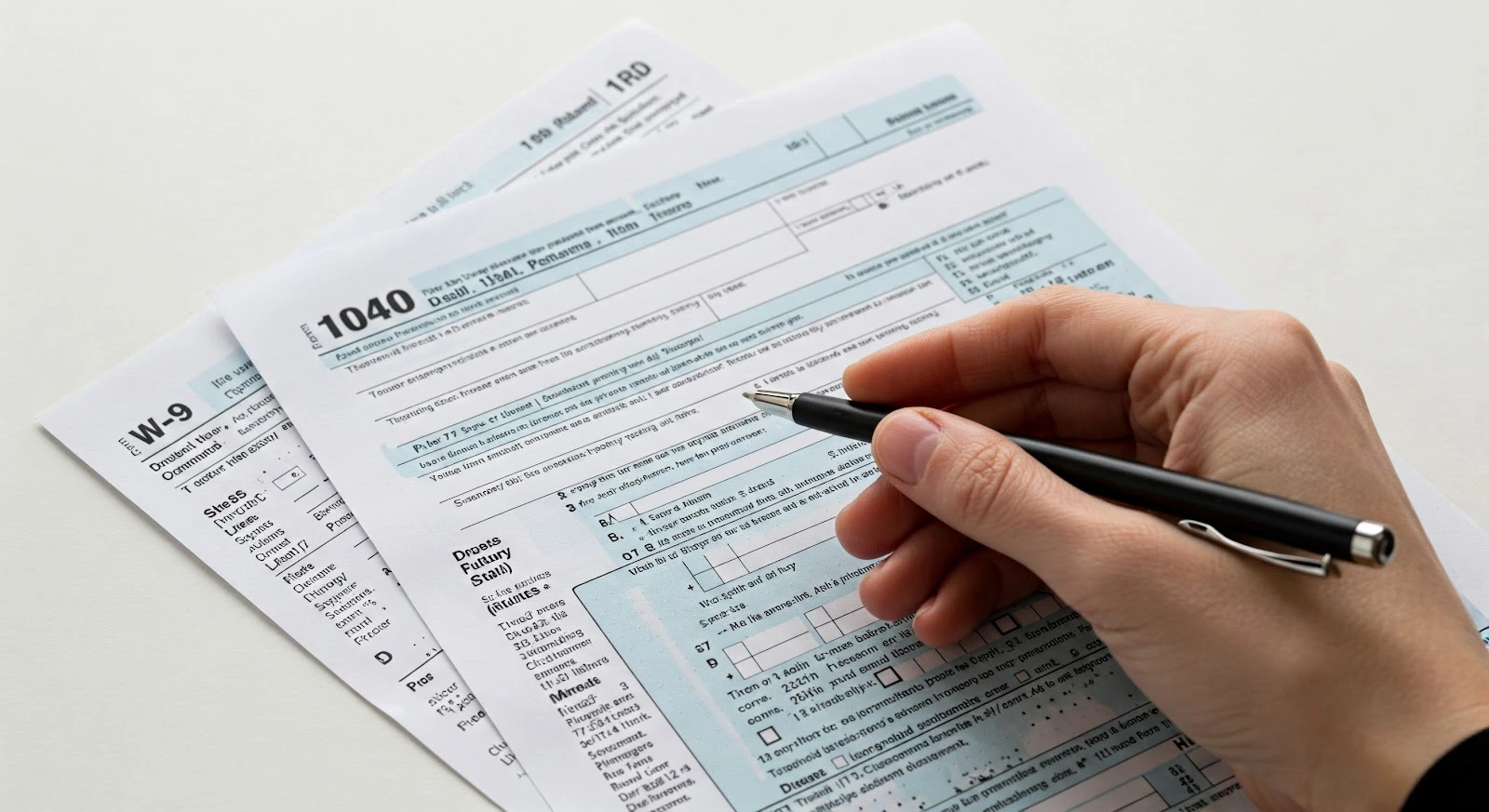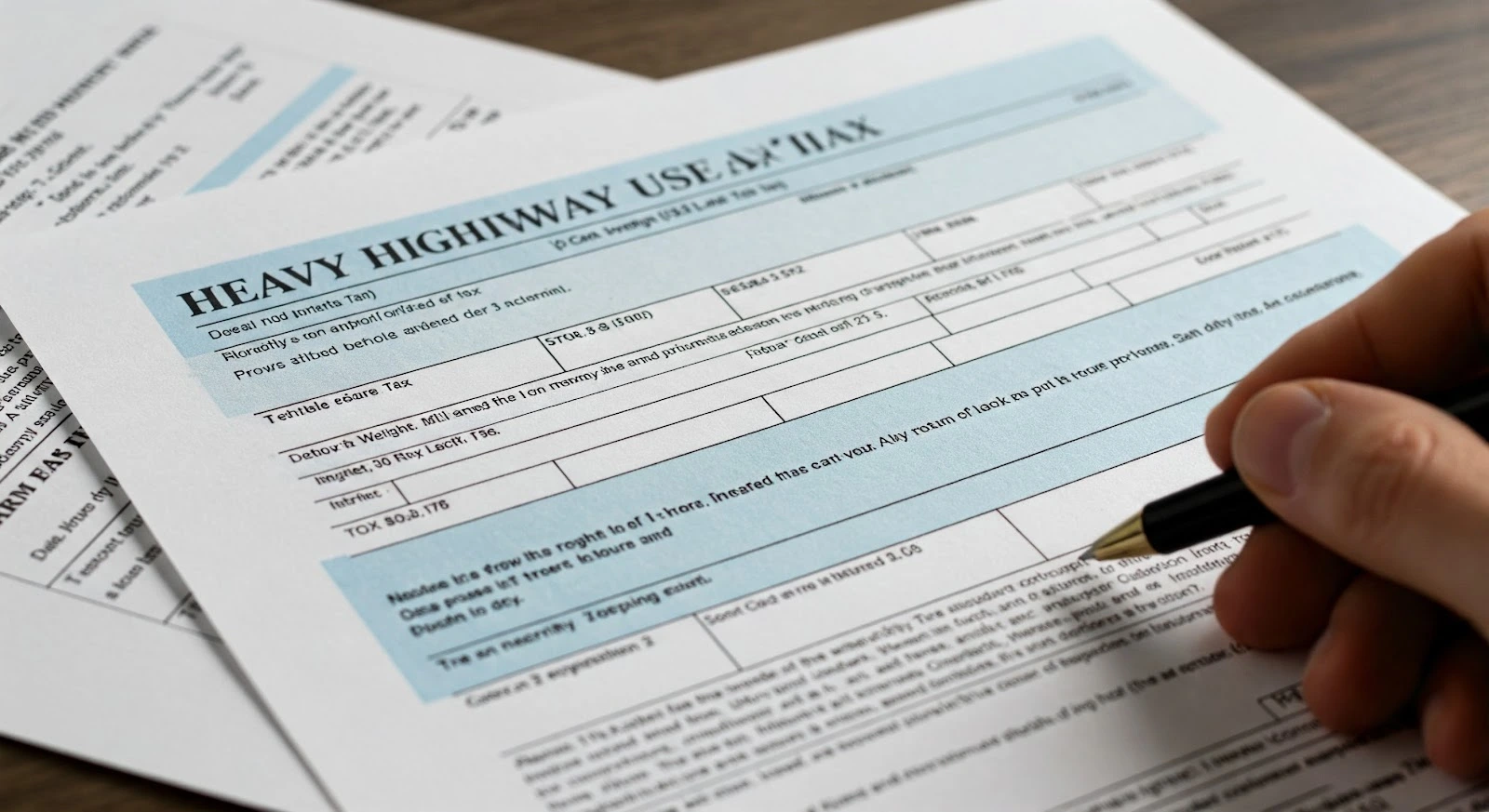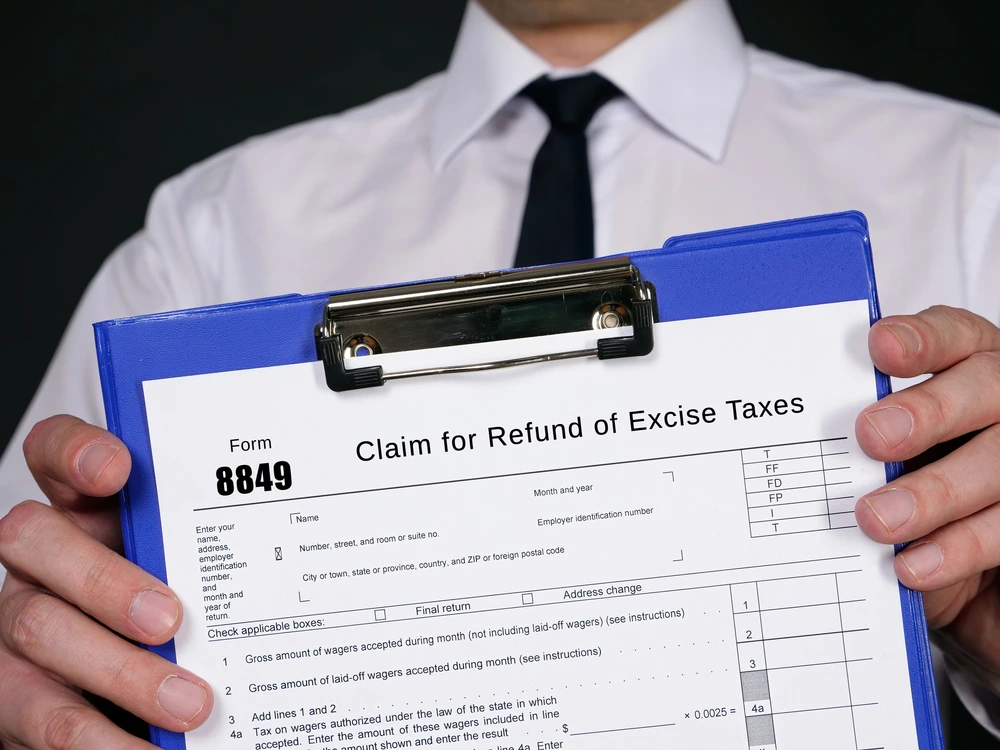Not having a plan for truck driver taxes is like hitting the open road without knowing where you’re headed — a surefire way to run into unnecessary mishaps and expenses.
Mapping out a plan of action for your tax season will not only save you time and money, but it will help keep you from making a mistake that could lead to a future IRS audit or penalty.
Staying on top of your truck driver taxes can feel overwhelming, though, so we’ve put together the ultimate guide for truck driver taxes, including everything you need to know about tax deductions and IRS tax forms for truck drivers. We’ve also provided all the tips and tricks to maximize your tax returns. Let’s get started!
Common Tax Deductions for Truck Drivers
More than just a vehicle, your truck is also your place of business, which means everything you need to operate your truck could also count as a tax deduction. Here’s what you need to know about truck driver tax deductions.
Per diem expenses for truck drivers
Per diem expenses are one of the most significant truck driver tax deductions you can make as a contract driver or owner-operator. But what exactly does per diem mean?
Deriving from a Latin phrase that translates to “by the day,” per diem is simply reimbursement for meals and other incidental expenses that occur while on the road (for example, dry cleaning a uniform or tipping a server).
According to the IRS, truck drivers need to meet the following criteria to qualify for per diem expenses:
- Your work requires you to be away from your “tax home” longer than a standard workday
- You need to rest and sleep to carry out your duties (while away from home)
What exactly does this mean for truck driver taxes? Basically, you get to claim a set amount for every day you’re away from home. However, if you drive locally, you likely won’t qualify. And for the days you leave and come back home, you can only claim a partial day allowance.
While the per diem rates vary for each city and state, the IRS abides by the General Services Administration’s current rates.
Truck maintenance and repair expenses
Because your truck is designated as a non-personal-use vehicle, you can deduct everything you pay to maintain and repair it. For example, common truck driver tax deductions for vehicle maintenance could include the following:
- Washing your truck
- Replacing the tires
- Truck lease payments
- Depreciation value of your vehicle
- Fuel, toll fees, and parking fees
Home office deductions for truck drivers
While doing your truck driver taxes, you’re likely to come across some traditional office expenses to run your business. You can also count these as deductions, including the following:
- Log books or accounting software
- Pens, pencils, paper, and staplers
- Cleaning supplies
- Postage and envelopes
- Faxing and photocopying
- Calculators
Other common deductions for truck driver taxes
Here are some other common expenses that truck drivers can count toward their tax deductions:
- Electronics – Cell phones, GPS units, GPS map updates, power boosters, and CB radio
- Tractor supplies – Bunk heaters, coolers, and window screens
- Tools – Bungee cords, chains, tarps, electrical tape, and flashlights
- Safety clothing – Gloves, boots, sunglasses, and thermals
- Insurance – Commercial auto liability, property damage insurance, and loss of cargo insurance (if you pay for your own health insurance, you’ll count it as a deduction on a separate tax form)
- Licensing fees – State business licenses, your commercial driver’s license (CDL), etc.
- Education – Training for CDL licenses, business courses, etc.
IRS Tax Forms for Truck Drivers
Running your own trucking business is no easy task, especially when it includes filing and distributing IRS tax forms. Here’s a rundown of everything you need to know as a truck driver and owner-operator.
1099 forms
Whether you work as an independent contractor or you hire one out for your trucking business, you’ll still have to report how much money was paid. That’s where 1099 forms for truck drivers come into play.
1099 forms for employers
If you paid an independent contractor more than $600 in a tax year, you’ll need to report the compensation you gave them on Form 1099-NEC.
To file a 1099 form, you’ll include the following:
- Your business name
- Your business address
- Your EIN
- Your independent contractor’s name
- Your independent contractor’s EIN or social security number
- Your independent contractor’s address
If you need your independent contractor’s information, you can request it through a W-9.
There are also additional federal and state details you’ll need to know, depending on where you live. This could include state income, payer state number, and withheld state tax.
1099 forms for truck drivers
As an independent trucking contractor, you’ll need client 1099s to report the income you earned during the tax year.
If you haven’t been making estimated quarterly payments, then you’ll likely end up owing the IRS for state and federal taxes, social security, and Medicare.
Schedule C forms
Every taxpayer must file the IRS Form 1040.
If you’re an owner-operator, you’ll also file Schedule C along with Form 1040. This is what independent contractors use to report their trucking income (from your 1099s) and expenses (from your deductions) for the tax year.
Usually, if you file Schedule C, you’ll also have to file Schedule SE to report self-employment taxes.
Form 2290
Form 2290 is used to pay the Heavy Vehicle Use Tax, which the IRS collects for highway construction and maintenance.
If your truck weighs 55,000 pounds or more and you operate it on public highways, you must file a 2290 form.
To file a 2290 form, you’ll need the following information:
- Your employer identification number (EID)
- Your full name (must match your EID)
- The vehicle identification number for each truck you own/operate
- The taxable gross weight of each vehicle
You must also file a 2290 form to get your stamped Schedule One, which you’ll need to renew your plates for your truck or to be leased by a company.
However, the due date for Form 2290 is not tied to your vehicle registration date. Instead, it depends on the first month you use your truck (a taxable vehicle) for business. Typically, the tax period begins on July 1 and ends on June 30 of the following year.
If you miss the deadline to file your 2290 on time, you’ll face a penalty fee and an additional interest charge on late payments.
Other IRS tax forms for truck drivers
Other possible tax forms could include the following:
- Form 2016 – Use this form if you provide your services as an employee and need to claim business-related expenses.
- Form 8849 Schedule 6 – Use this form to claim any taxes you made in excess.
- Form 1040-ES – Use this form if you’re an owner-operator that has an expected tax liability of $1,000 or more.
Estimated tax payments
If you’re a self-employed truck driver and expect to owe at least $1,000 in taxes, you must make estimated tax payments each quarter.
Your estimated quarterly payments include self-employment tax and federal and state income tax.
So how much should you set aside for these quarterly tax payments? Generally, you’ll want to allocate between 25%-30% of your monthly income. That’s because your income tax will likely fall into the 10%-12% income tax bracket, and self-employment tax will be roughly 15.3% of your net earnings. (The self-employment rate includes a 12.4% Social Security tax and a 2.9% Medicare tax).
You can pay your federal tax estimates online or via the IRS mobile app. (If you have an electronic federal tax payment system account, you can make your payments there.) Many states also let you pay your estimated taxes online.
Pro tip: If you find that you earned more than you expected in the tax year, make a large payment in the fourth quarter. That way, you can bridge the gap between your estimations and the actual tax amount you owe (and avoid any IRS penalties).
State Tax Laws for Truck Drivers
Overview of state income tax
Forty-three states and the District of Columbia have state income taxes. The seven states that do not impose individual income taxes are Alaska, Florida, Nevada, South Dakota, Texas, Washington, and Wyoming.
The definition and rules of taxable income vary by state. For example, New Hampshire and Tennessee residents only pay tax income from dividends and interest.
To stay on top of your state taxes, check your state’s government website for more information on where you live and work.
State-Specific Truck Driver Taxes
Truck driver taxes also vary from state to state. For example, in Washington, independent contractors and owner-operators could be subject to public utility tax, business and occupation tax, retail sales tax, and use tax. Again, check your state’s government website for more details.
Tips for Maximizing Your Tax Returns
Keep accurate records
Stay on top of tracking your expenses, so you can have accurate records when it comes time to report your truck driver tax deductions. Here are a few tips to keep everything in order so you can maximize your tax returns:
- Always ask for a receipt, even for smaller expenses — those small snacks on the road can add up over time!
- Sort and organize your receipts by expense — like food, fuel, equipment, etc.
- Store your receipts in one central place, whether in a labeled folder or a spreadsheet.
- Keep a log book that documents the date, time, and purpose of each trucking trip.
- Track your miles as you go so you don’t forget to record any trips or stops.
- Consider using accounting software or another form of digitized tracking to easily record your expenses and the income you’re bringing in.
Take advantage of tax credits
Before you file your truck driver taxes, check if you’re eligible for any tax credits.
For example, if your truck is registered as a Heavy Highway Motor Vehicle and it was stolen, destroyed, or sold before June 1, you can count it as a credit vehicle. Similarly, if your truck is registered as a heavy vehicle and you use it for 5,000 miles or less (7,500 miles or less for agricultural purposes), it will also qualify as a tax credit.
A truck that qualifies as a plug-in electric drive motor vehicle can also be claimed as a tax credit.
And, if you donate to charities and nonprofits during the tax year, you can claim these donations on your truck driver taxes as well.
Truck driver taxes have a lot of nuances, which can be confusing and take a lot of time to sort out. Consider working with a tax professional that’s knowledgeable about the truck driving industry, especially if you’re filing as an owner-operator for the first time.
Filling your 2290 Forms
You’ll also have to go through an IRS-approved third party to e-file your 2290 forms. That’s where ExpressTruckTax can help. As a market-leading Form 2290 e-file provider, we make it easy for business owners to file online for themselves or for their drivers. Whether you’re filing Form 2290 for one truck or multiple trucks, filing with ExpressTruckTax only takes a few simple steps. And if you have any questions along the way, our dedicated support team of experts is available to help. What are you waiting for? File with ExpressTruckTax today for a fast and easy Form 2290 filing experience!
Common Questions About Truck Driver Taxes
Q: What tax deductions can I claim as a truck driver?
A: As a truck driver, you can claim per diem expenses, truck maintenance and repair, home office supplies, and anything you need to run your truck-driving business, like electronics, tools, and safety clothing, for your deductions.
Q: What IRS forms do I need to file as a truck driver?
A: Essential IRS tax forms for truck drivers include Form 1049 (which might include Schedule C and Schedule SE), Form 1099, and Form 2290.
Q: What are the state tax laws for truck drivers in my state?
A: Truck driver taxes vary from state to state. Check your state’s government website for more information on the taxes for where you live.
Q: How can I maximize my tax returns as a truck driver?
A: Maximize your tax savings by keeping clear records of your tax deductions and working with a tax professional who understands the ins and outs of the truck driving industry.



